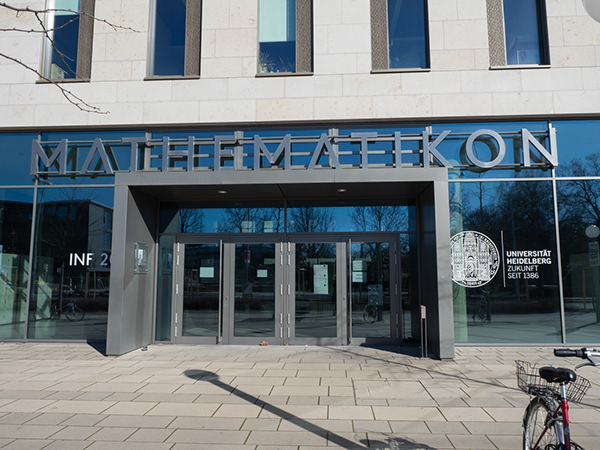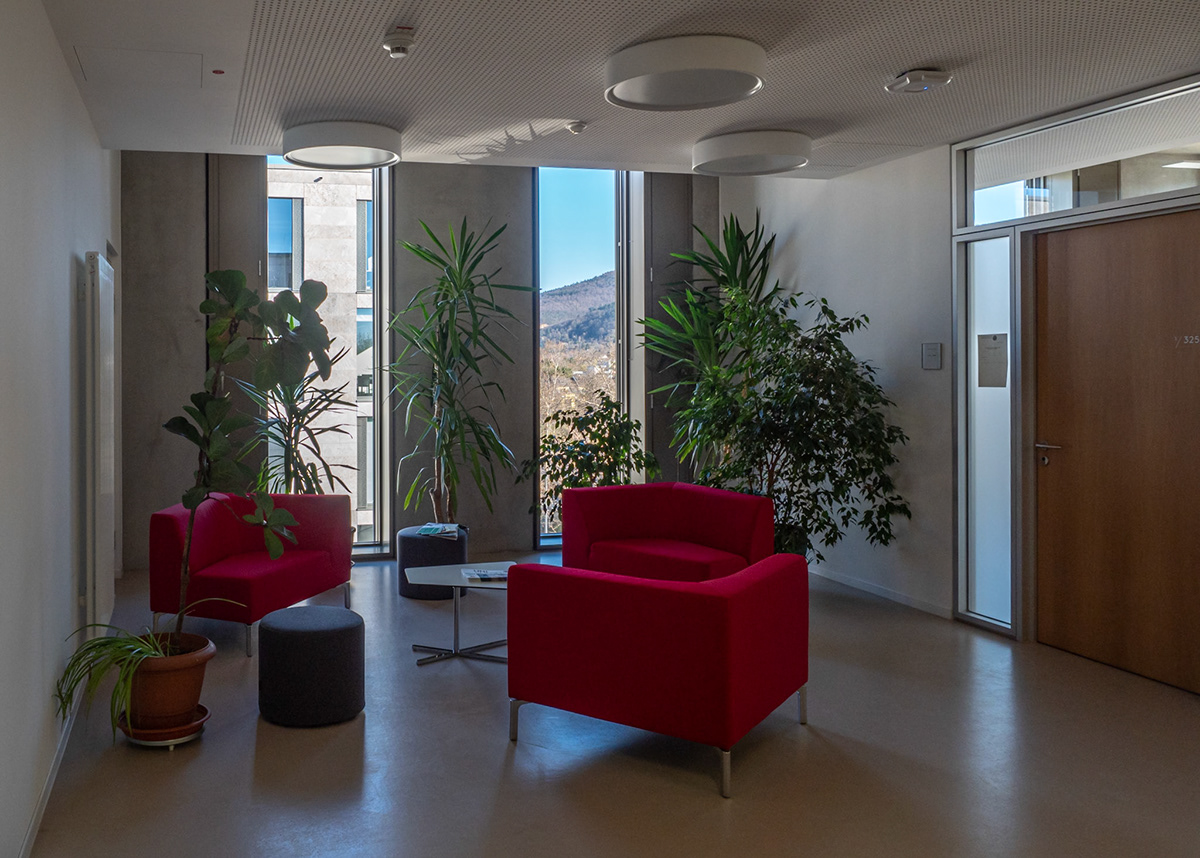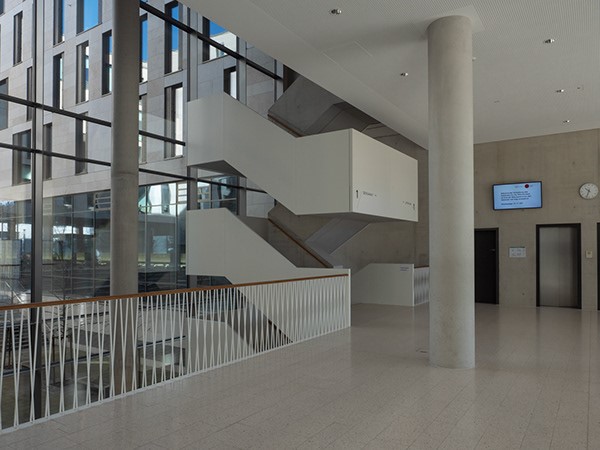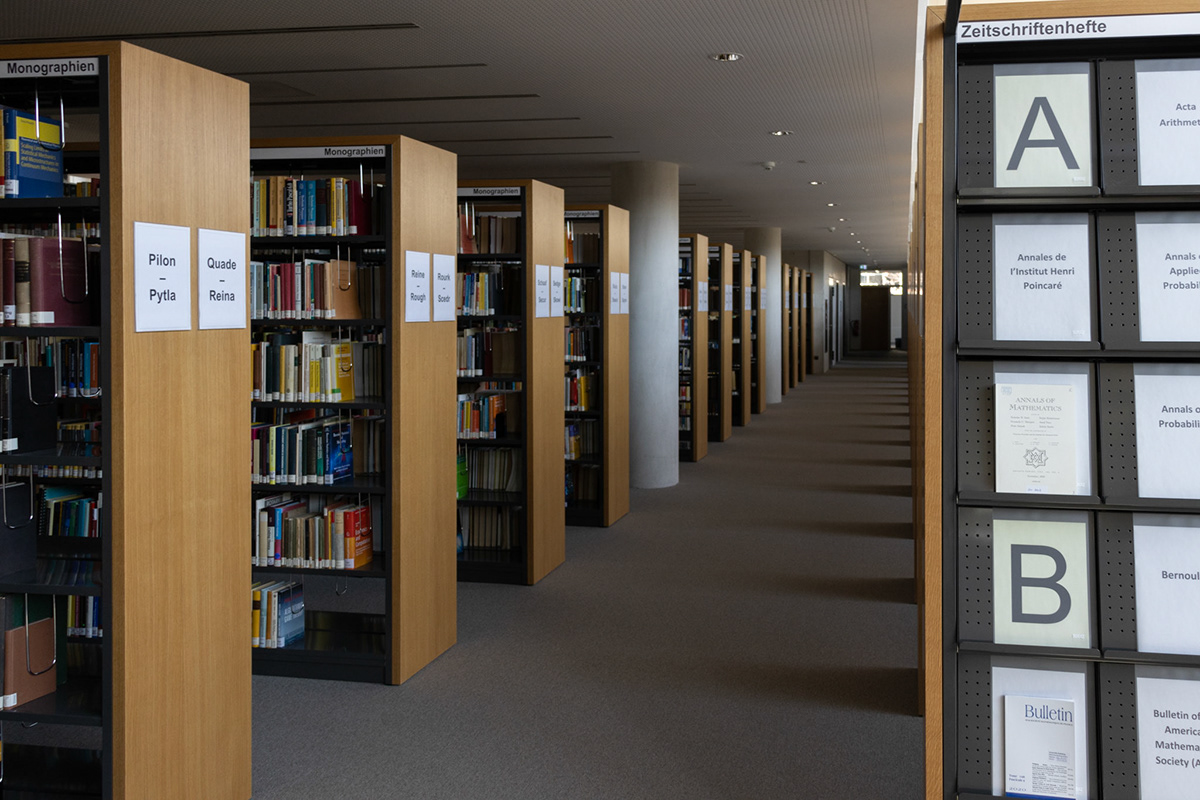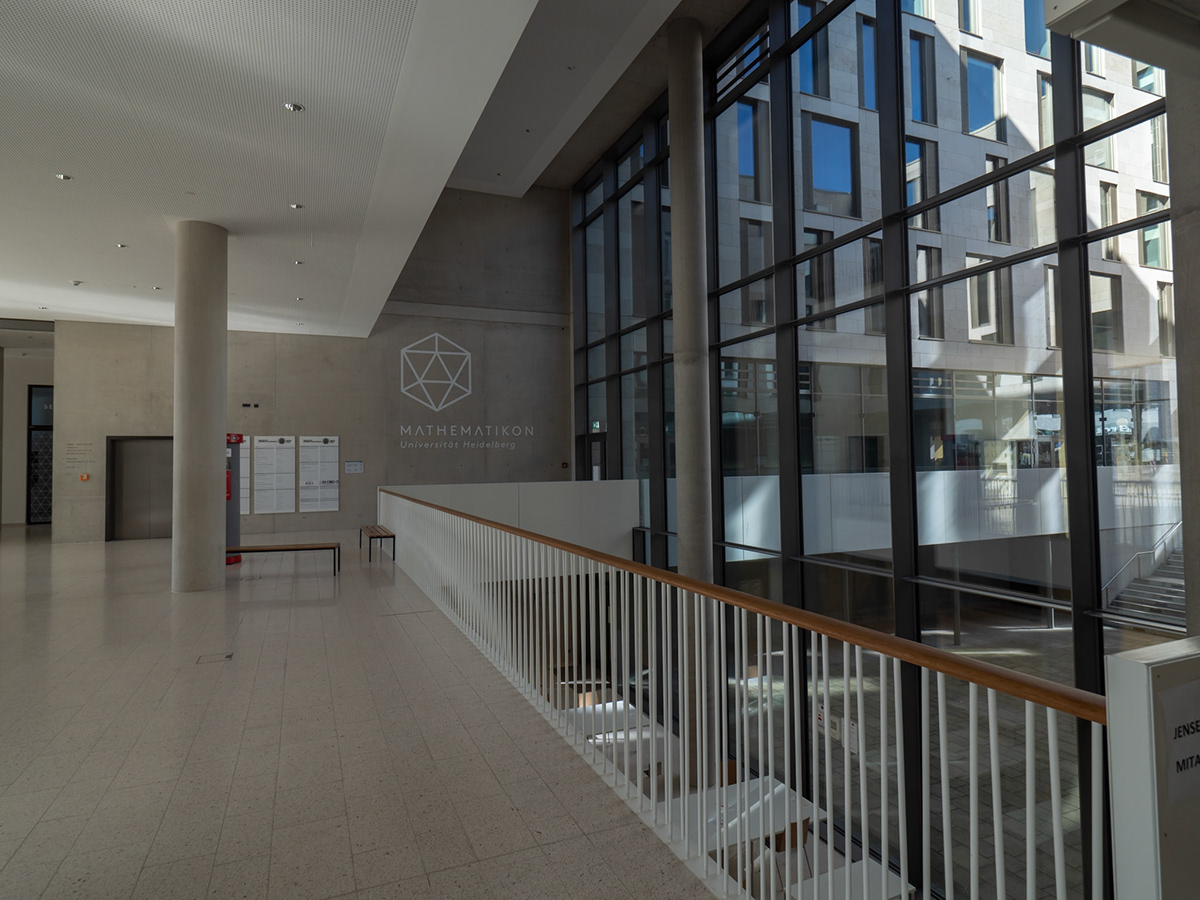
The Faculty
basic organizational unitof the university and assumes the mission of the university in its respective domain. This includes research, teaching, studies, training of the next generation of academics, and academic self-governance.
Members of our faculty include
- university professors with their work focus in the fields of mathematics and computer science,
- co-opted members of other faculties,
- students enrolled in a course of study offered by the faculty,
- doctoral candidates accepted at the faculty,
- scientific and other staff employed at the faculty or affiliated institutions
At a glance
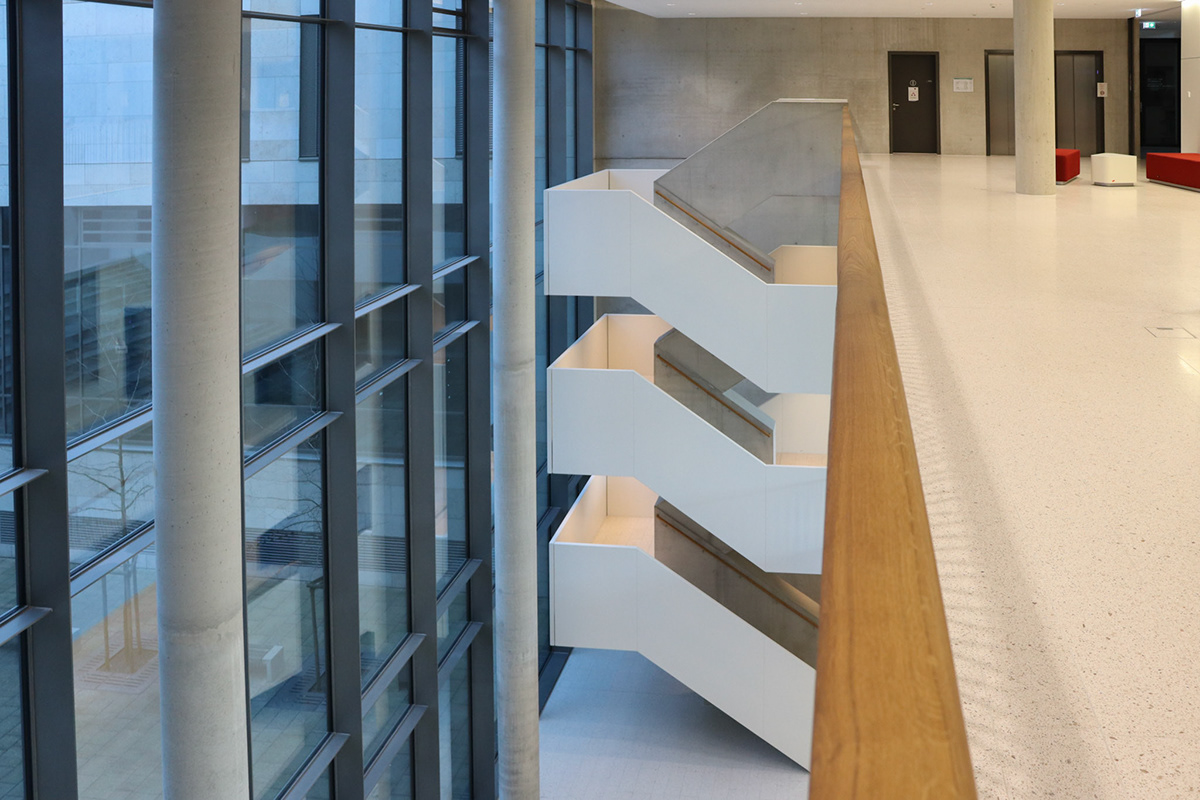
As of Summer 2021, the academic staff of the faculty comprises 33 full-time professorial members, 6 junior professors (with or without tenure-track), 6 permanent senior lecturers, and around 60 junior scientists employed at its three departments and neighboring institutions.
The student body of around 2000 members is distributed roughly 2:1 between mathematics and computer science, and 3:2:1 between Bachelor 100%, Bachelor 50%, and Master programs (including Master of Education). There are a total of 154 doctoral candidates.
All important decisions are made by the Grand Faculty Council, comprising all full-time Professors (including Junior Professors) as well as elected representatives of other constituencies. The faculty board is chaired by the Dean of the faculty and includes the Vice-dean, two Deans of Studies (Mathematics and Computer Science) and the Managing Directors of the three departments of the faculty. The day-to-day affairs are managed at the Dean's office.
The departments of the faculty are
- The Institute for Mathematics (established 2023)
- The Institute for Computer Science (founded 2001)
Heidelberg University's traditional strengths and special characteristics in Mathematics and Computer Science include
- a broad research program reaching from algebra and theoretical computer science via statistics and geometry to numerical data analysis and computer engineering,
- research oriented teaching and application oriented research,
- a basic training of students emphasizing theoretical foundations and applications in both fields,
- interdisciplinary collaboration with neighboring faculties,
- a spread-out and very diverse department of computer science,
- close proximity and intertwinement with central and external research institutions, and especially the Interdisciplinary Center for Scientific Computing (IWR),
- a first-class research environment embedded in the Rhein-Neckar metropolitan region with a high quality of life in the immediate vicinity of the Geo-Naturepark Bergstrasse-Odenwald.
Research and Teaching
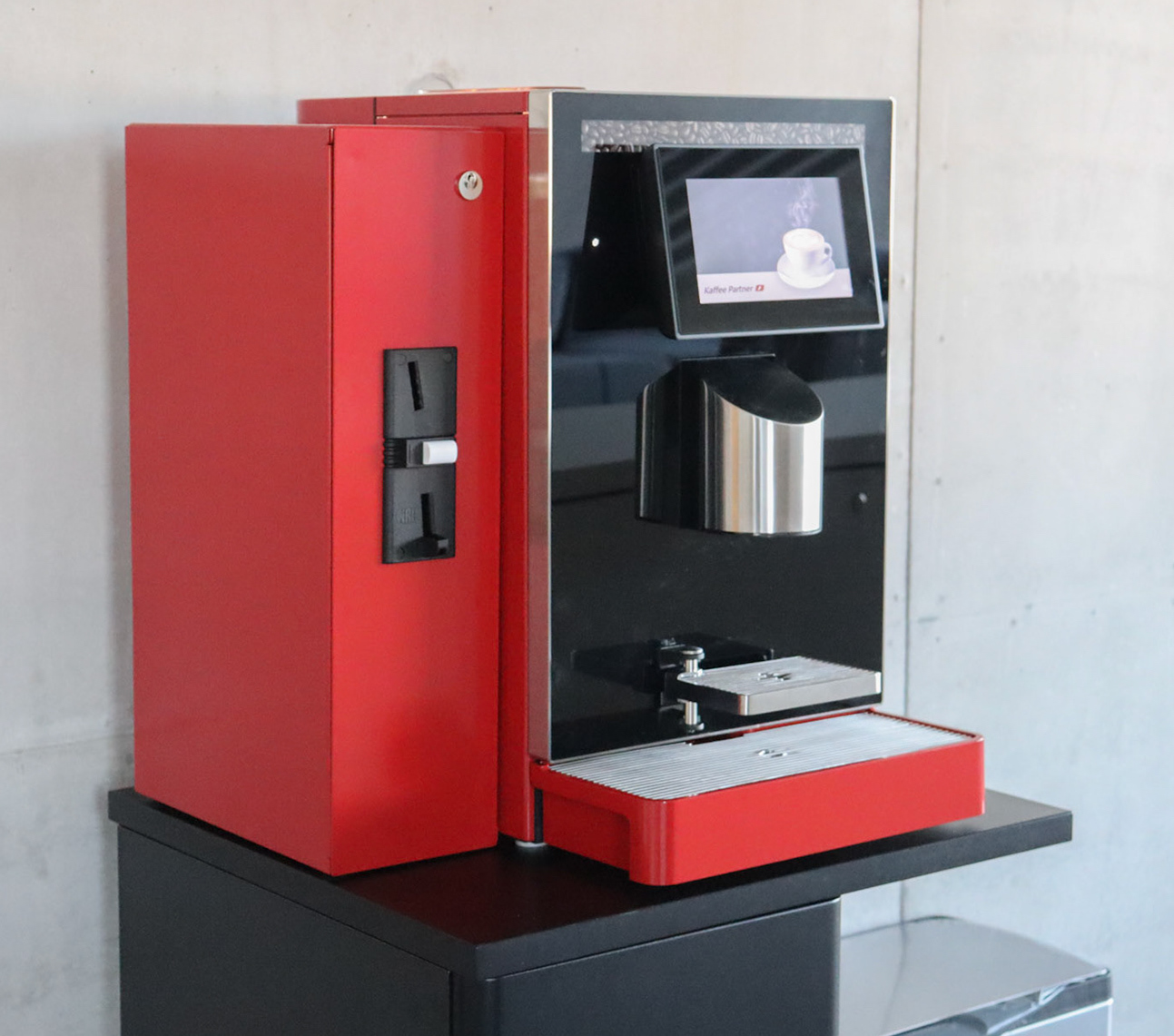
The training of students at the faculty is strongly research-oriented. The research activities are characterized by a high level of third-party funding. Major grants include, in pure mathematics, the research units Topology and Non-commutative Geometry
(1992-1998), Arithmetic (1998-2005), Symmetry, Geometry and Arithmetic
(2013-2019), and, more recently, the research training group Asymptotic Invariants and Limits of Groups and Spaces
(since 2014) and the collaborative research centers Symplectic Structures in Geometry, Algebra, and Dynamics
(since 2018 in Heidelberg) and Geometry and Arithmetic of Uniformized Structures
(since 2021); in applied mathematics, the collaborative research centers Stochastic Mathematical Models
(1977-1992) and Reactive Flows, Diffusion and Transport
(1993-2004) and the research training groups Modeling and Scientific Computing in Mathematics and Natural Sciences
(1992-2001), Complex Processes: Modeling, Simulation and Optimization
(2002-2009), and Statistical Modeling of Complex Systems
(2014-2020).
Excellence
The Excellence Initiative of the German government (2005-2019) gave essential impulses and incentives for the establishment of new cooperations across mathematics as well as with other disciplines. This includes the Heidelberg Graduate School for Mathematical and Computational Methods for the Sciences
, founded at IWR with essential participation of the faculty, and the Mathematics Center Heidelberg
as a joint endeavor of pure and applied mathematics. The Cluster of Excellence STRUCTURES, awarded in 2019 the framework of the Excellence Strategy of German federal and state governments, is jointly supported by the Faculty of Mathematics and Computer Science, and the Faculty of Physics and Astronomy.
New Institutions
The Research Station Geometry and Dynamics
was established at the Mathematical Institute in 2020 to bundle the remarkably successful recent collaboration between differential and symplectic geometry and to consolidate the ongoing research activities. The research station also pursues the dual aim of basic mathematical research and the opening up to other sciences and fields of application.
Curriculum
For a number of years now, the training of students in mathematics and computer science has been divided in undergraduate Bachelor programs, subject specific Master programs as well as a number of programs offered jointly with other units of Heidelberg University.
The Bachelor degrees come in 100% and 50% versions, and the latter with a teaching option
as a first step in the training of secondary school teachers. This is typically followed by a Master of Education in mathematics or computer science. The training of teachers and contact with schools is essential to the faculty for many reasons.
The Bachelor degrees are viewed as a first professional qualification, that is completed during the Master phase, and our graduates have excellent prospects for landing a job in the private sector.
The Master degrees are also stepping stones to a career in academia that begins with the doctorate, and the faculty is proud of its support of young researchers. For many years, a remarkably high fraction of Independent Research Group Leaders and Private Lecturers trained at the faculty have secured offers for permanent faculty positions at other universities. Heidelberg Mathematics
has a notable influence on the genealogy of young academics in Germany.
Diversity

The Faculty of Mathematics and Computer Science is an open community that attracts excellent students and scientists from around the world to Heidelberg. Over the past decade, the research and student body has diversified significantly. The faculty has one of the least leaky
pipelines of the university, and has committed significant resources to providing equal opportunity to all. Several programs and individual course modules are now offered in English, a trend that is expected to continue as a consequence of European integration.
The Faculty of Mathematics and Computer Science has diverse contacts to scientific institutions all over the world, e.g. in France, the UK, USA, Canada, Mexico, Brazil, Russia, India, Japan, Vietnam, and China. The close collaboration with the Mathematical Institute of the University of Prague has recently intensified and been extended to Warsaw and Paris in the framework of the 4EU+ Alliance. The international cooperation includes exchange programs for undergraduates, Master and doctoral students.


